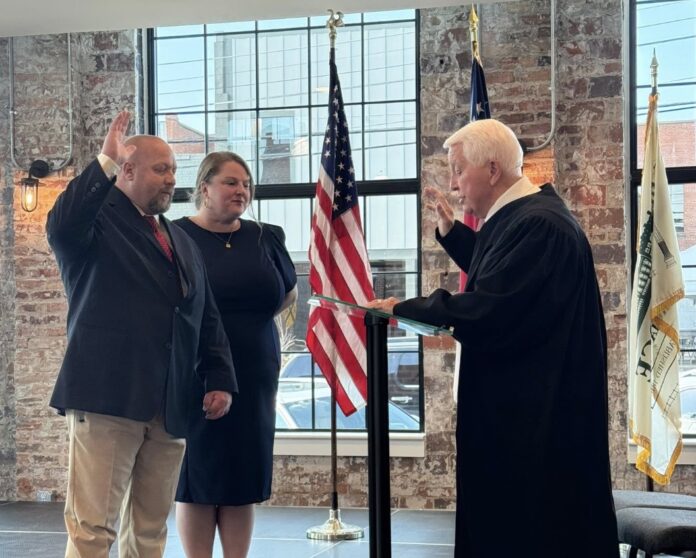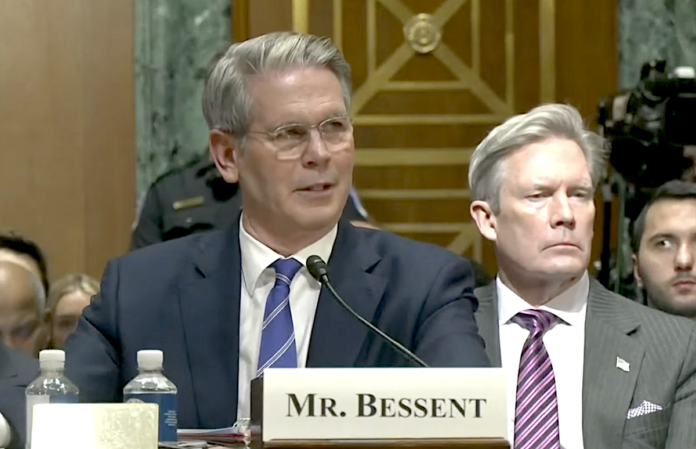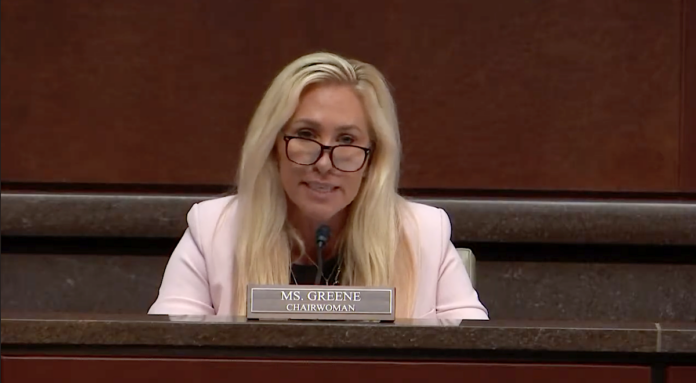WASHINGTON (States Newsroom) — President Donald Trump urged Congress to eliminate funding for the Corporation for Public Broadcasting during his first term, but was largely unsuccessful.
Now, in his second go-around, Trump is once again asking lawmakers to scrap federal spending on the private, nonprofit corporation that Congress established in the 1960s.
The Corporation for Public Broadcasting allocates funding to National Public Radio, or NPR, and the Public Broadcasting Service, or PBS, as well as more than 1,500 local radio and television stations throughout the country.
Trump’s renewed focus on public media — in his budget proposal, an executive order and an expected rescissions request — has led the organizations that benefit from the CPB to start talking more than they have in recent years about their funding and their journalism.
Katherine Maher, president and CEO of NPR, rejected the idea that ending funding for the CPB would have a significant impact on the federal ledger, since the “appropriation for public broadcasting, including NPR and PBS, represents less than 0.0001% of the federal budget.”
Maher also opposed what she viewed as the Trump administration seeking to influence journalists and news organizations.
“The President’s order is an affront to the First Amendment rights of NPR and locally owned and operated stations throughout America to produce and air programming that meets the needs of their communities,” Maher wrote in a statement. “It is also an affront to the First Amendment rights of station listeners and donors who support independent news and information.”
Paula Kerger, CEO and president at PBS, also defended the CBP as well as the news programs that receive its funding.
“There’s nothing more American than PBS, and our work is only possible because of the bipartisan support we have always received from Congress,” Kerger said. “This public-private partnership allows us to help prepare millions of children for success in school and in life and also supports enriching and inspiring programs of the highest quality.”
NPR receives about 1% of its direct funding from the Corporation for Public Broadcasting, while PBS receives about 15%. Those numbers fluctuate for the local stations, which tend to get more, but not all, of their operating budgets from CPB funding.
Senate likely to balk
House Republicans, who have sought to zero out funding for the Corporation for Public Broadcasting in recent appropriations bills, are likely to get on board. But senators, who write broadly bipartisan bills, haven’t taken that step and appear unlikely to do so this year — possibly helping public media resist Trump’s cutback attempts, as it did during his first term.
The differences between the House and Senate will lead to heated debate for months to come about future spending on the Corporation for Public Broadcasting as well as the dozens of other programs Trump told lawmakers to stop funding in his budget request.
Wisconsin Democratic Sen. Tammy Baldwin, ranking member on the panel that funds CPB, told States Newsroom during a brief interview she hopes lawmakers “can effectively fight back against that proposed budget.”
“I find that some of my Republican colleagues, especially those from rural states, hear from their constituents that they are reliant on public broadcasting, especially radio for local information, news, etcetera,” Baldwin said. “And there’s not a lot of other radio resources out there. But I think the same can be said about the public television offerings.”
Opinions among Republicans vary, though.
Louisiana Republican Sen. John Kennedy, who sits on the spending panel, said funding for CPB “may have made sense at one time, but the American taxpayer has no business spending half a billion dollars a year subsidizing media.”
Kennedy said he doesn’t expect rural residents will lose access to local television and radio programming should Congress eliminate the funding.
“Rural communities have the same access as everybody else to cable, to streaming, to getting their news off of this thing,” Kennedy said, pointing to his cell phone. “It’s just an argument by the Corporation for Public Broadcasting to hold on to a government subsidy.”
Alaska Republican Sen. Lisa Murkowski, a senior member of the Appropriations Committee, pushed back against defunding.
She wrote in an op-ed published in the Fairbanks Daily News-Miner that while she shares “the desire to reduce government spending, defunding the CPB, and particularly the essential reporting it allows locally owned radio and television stations to provide in Alaska, is not the place to start.”
Alaska’s local stations received $12 million last year from CPB, which made up between 30% and 70% of their total budget, in addition to individual donation and state funding, according to the op-ed.
“Not only would a large portion of Alaska communities lose their local programming, but warning systems for natural disasters, power outages, boil water advisories, and other alerts would be severely hampered,” Murkowski wrote. “What may seem like a frivolous expense to some has proven to be an invaluable resource that saves lives in Alaska.”
CPB has a state-by-state breakdown on its website detailing how much it provided during each of the past six years. The individual profiles show what portion of each state’s funding went to different programs, like the Next Generation Warning System, radio programming, Ready to Learn and Television Community Service Grants.
Public media among multiple Trump targets
Trump’s skinny budget request, released last week, calls on Congress to cease funding the CPB as well as dozens of other organizations, including the National Endowment for Democracy and the Low Income Home Energy Assistance Program, or LIHEAP.
The section on CPB says the request is “consistent with the President’s efforts to decrease the size of the Federal Government to enhance accountability, reduce waste, and reduce unnecessary governmental entities.”
Trump has also signed an executive order directing the CPB Board of Directors as well as executive departments and agencies to halt funding NPR and PBS.
The order stated that the “viewpoints NPR and PBS promote does not matter. What does matter is that neither entity presents a fair, accurate, or unbiased portrayal of current events to taxpaying citizens.”
Patricia Harrison, president and CEO of the Corporation for Public Broadcasting, wrote in a statement responding to the executive order that Trump didn’t have the authority he was trying to wield.
“CPB is not a federal executive agency subject to the President’s authority,” Harrison wrote. “Congress directly authorized and funded CPB to be a private nonprofit corporation wholly independent of the federal government.
“In creating CPB, Congress expressly forbade ‘any department, agency, officer, or employee of the United States to exercise any direction, supervision, or control over educational television or radio broadcasting, or over [CPB] or any of its grantees or contractors…’ 47 U.S.C. § 398(c).”
There are also several news reports that the Trump administration will send a rescissions request to Capitol Hill, asking lawmakers to pull back funding already approved for CPB. But the Office of Management and Budget hasn’t yet taken that step.
The Corporation for Public Broadcasting received steady funding from Congress starting at its founding, before the last Trump administration asked lawmakers to phase out its appropriation.
The last Trump administration’s first budget request called on lawmakers to “conduct an orderly closeout” by providing $30 million for CPB that would have gone toward salaries, rent and other costs.
The proposal argued that “private fundraising has proven durable, negating the need for continued Federal subsidies.”
“Services such as PBS and NPR, which receive funding from the CPB, could make up the shortfall by increasing revenues from corporate sponsors, foundations, and members. In addition, alternatives to PBS and NPR programming have grown substantially since CPB was first established in 1967, greatly reducing the need for publicly funded programming options.”
Funding increased despite Trump
Congress didn’t go along with the fiscal 2018 budget request for the CPB, and it wouldn’t for the rest of Trump’s first term.
In March 2018, lawmakers approved $445 million, followed by the same amount in the next year’s bill. Congress then lifted spending to $465 million in December 2019 and then again just before Trump left office for a total funding level of $475 million.
Those allocations continued rising during the Biden administration, reaching a $535 million appropriation in March 2024, the last full-year spending law enacted before Trump returned to the Oval Office.
House Republicans did, however, try to phase out funding for CPB during the second half of President Joe Biden’s term. The House GOP provided a two-year advanced appropriation until 2023, when Republicans announced they wanted “the Corporation for Public Broadcasting to compete with other programs in the bill for annual funding.”
Those efforts didn’t work and the final spending bill, which became law in March 2024, included funding for CPB.
Senate Democrats wrote after negotiating the bipartisan agreement that it “protects funding for the Corporation for Public Broadcasting to support more than 1,500 locally owned TV and radio stations nationwide—rejecting House Republicans’ proposal to zero out funding and weaken Americans’ access to local reporting.
“The bill maintains a critical investment of $60 million for digital interconnection and $535 million as a two-year advance appropriation, of which roughly 70% is provided directly to local public TV and radio stations.”
Final resolution far off
Congress is expected to begin work on its dozen annual appropriations bills sometime this summer, which collectively total about $1.8 trillion and make up about one-third of all federal spending.
The House Appropriations Committee will likely propose phasing out CPB funding, or at least its advanced appropriation, in its bill.
The Senate Appropriations Committee tends to write more bipartisan bills, so as long as several of the panel’s members advocate for CPB in its funding measure, the program will likely receive its advanced funding in that bill.
Final agreement between the House and Senate is supposed to come before the start of the next fiscal year on Oct. 1. But that rarely happens and lawmakers often use a stopgap spending bill to push off final negotiations until mid-December.
That’s likely the earliest this year the Corporation for Public Broadcasting and those who rely on it will learn if Congress will reduce or eliminate its funding. That is, unless lawmakers fail to reach agreement on that particular funding bill.
Congress would then have to use a stopgap spending bill, which mostly keeps funding levels on autopilot, until it can enact a full-year bill.




















